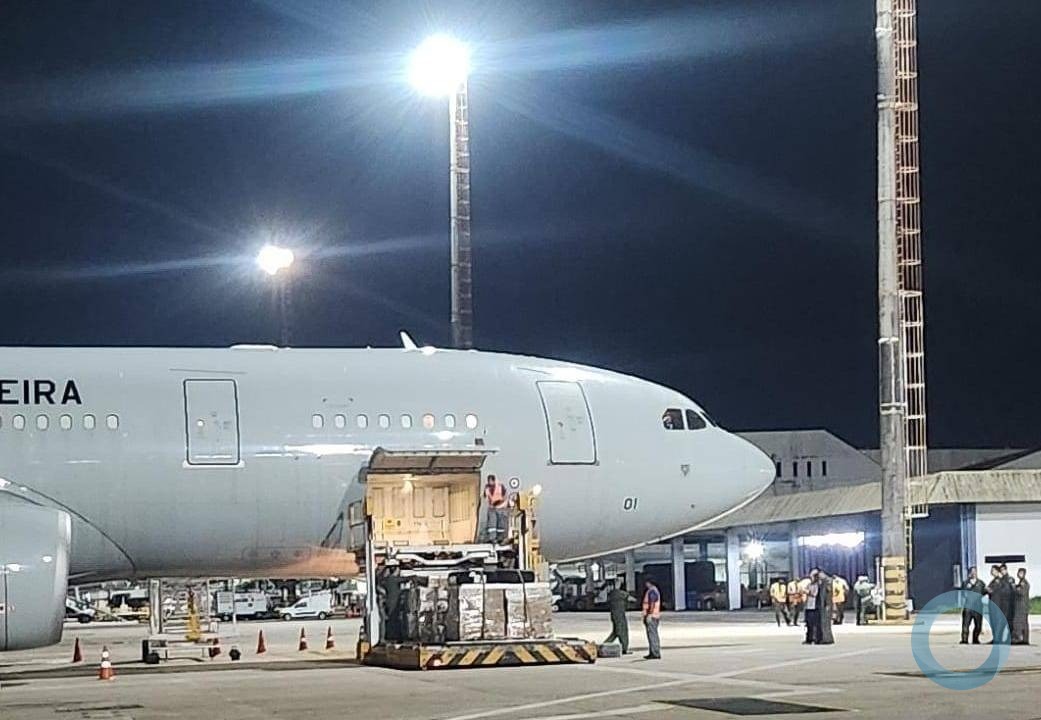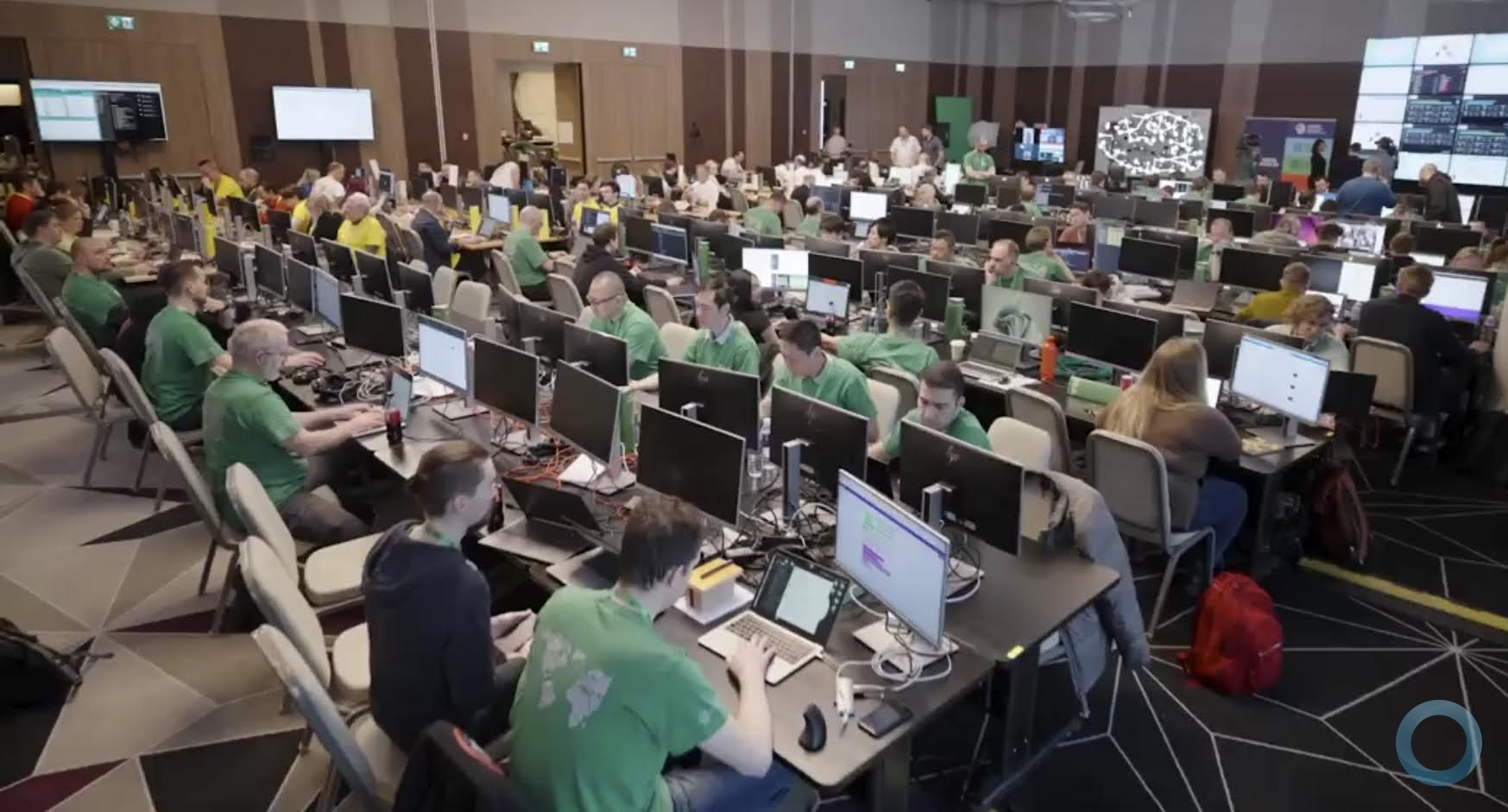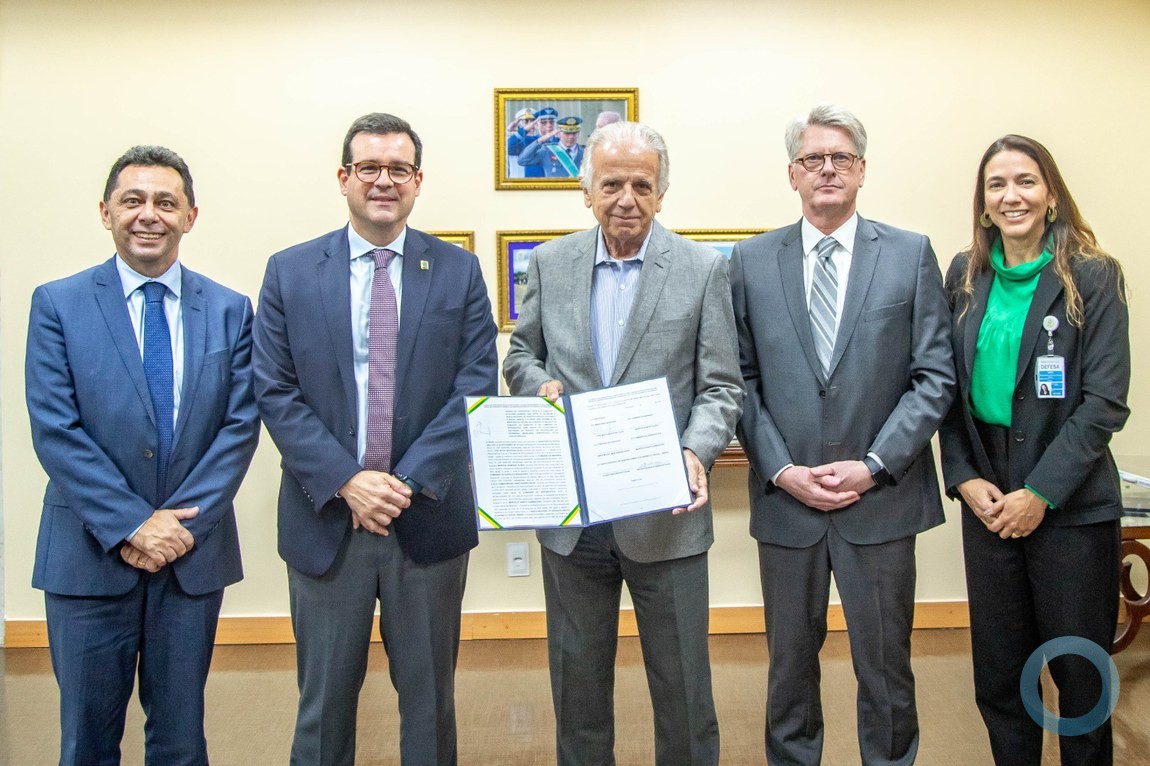JOINT ACTION PLAN BETWEEN THE GOVERNMENT OF THE FEDERATIVE REPUBLIC OF BRAZIL AND THE GOVERNMENT OF THE PEOPLE`S REPUBLIC OF CHINA 2015-2021
The Governments of the Federative Republic of Brazil and the People`s Republic of China (hereinafter referred to as "the two sides") have the common objective, stated in the Joint Communiqué between the Federative Republic of Brazil and the People`s Republic of China on Further Strengthening the China-Brazil Global Strategic Partnership, issued on the occasion of President Xi Jinping`s state visit to Brazil in July 2014, of renovating the Joint Action Plan Between the Government of the Federative Republic of Brazil and the Government of the People`s Republic of China 2010-2014 signed on April 15, 2010 in Brasilia and extending it to 2021.
The Brazil-China High-level Coordination and Cooperation Committee (hereinafter referred to as the High-level Committee), which guides bilateral relations and sets new goals for their future, therefore elaborated the updating of the Joint Action Plan Between the Government of the Federative Republic of Brazil and the Government of the People`s Republic of China (hereinafter referred to as the Joint Action Plan), which provides strategic and comprehensive guidance for the development of the Brazil-China Global Strategic Partnership.
Through friendly consultations the two sides reached an agreement as follows:
Article 1 – General Principles
- In order to further promote the development of the Global Strategic Partnership and enhance the mutually beneficial and friendly cooperation between the two countries, the two sides agreed on the Joint Action Plan in a spirit of equality and pragmatism, and with a view to obtaining win-win results.
- The Joint Action Plan, complemented by the Ten-Year Cooperation Plan, between the Government of the Federative Republic of Brazil and the Government of the People's Republic of China 2012-2021, defines the objectives, concrete goals and directions for the bilateral cooperation in the period of 2015-2021 with a view to broadening and deepening bilateral cooperation in all areas.
Article 2 – General Objectives
The two sides set the following general objectives for the Joint Action Plan:
- Strengthen political consultations and promote coordination on bilateral and multilateral issues of mutual interest, based on principles of equality and mutual trust, thus cementing the political foundation of the Global Strategic Partnership;
- Establish precise and objective goals, based on specific initiatives, for each of the cooperation areas;
- Monitor the activities of institutional mechanisms and the implementation of cooperation initiatives in all areas of the Global Strategic Partnership, as well as promote the exchange of national experience in areas of mutual interest;
- Evaluate the results achieved in all areas of cooperation;
- Recognize the vital role played by the knowledge economy in the competitive insertion of both countries in the global economy;
- Work towards mainstreaming sustainable development in national strategies and cooperation initiatives, ensuring the integration of the economic, social and environmental dimensions.
- Increase coordination in multilateral organizations and international fora, especially in issues related to the contribution of emerging countries to global governance and the strengthening of multilateralism so as to promote the democratization of international relations;
- Take a strategic view on bilateral relations, in the medium and long term, vis-à-vis the developments in the international arena.
Article 3 – Implementation of the Joint Action Plan
- The High-level Committee, as the main body of regular political dialogue and cooperation between the two countries, shall be, in its areas of competence, the main decision-making body of the Joint Action Plan and the Ten-Year Cooperation Plan. The High-level Committee will convene every two years or in shorter periods, if necessary, and continue to play its important role of guiding bilateral cooperation in all areas. If necessary, new institutional mechanisms will be created to meet the demands of the bilateral relation.
- The Subcommittees of the High-Level Committee will meet once a year to promote the implementation of the Joint Action Plan. The Subcommittees may also continue to identify new areas and propose new initiatives of cooperation should it be considered necessary. The Subcommittees should submit annual reports to the Focal Point of each side and submit reports to the High-level Committee every two years.
- For the effective implementation of this Joint Action Plan, the Brazilian and Chinese Focal Points for the High-level Committee shall meet once a year and be responsible for monitoring, reviewing and evaluating the implementation of this Joint Action Plan and make recommendations to the various Subcommittees in a timely fashion. The heads of the Executive Secretariat of the High-level Committee will visit each other from time to time for consultation on the implementation of the Joint Action Plan.
Article 4 – Political Area
- The two sides agree that bilateral relations are at an important stage of development given a higher level of strategic cooperation opportunities and political dialogue. The two sides will continue to stimulate political exchanges and dialogue and increase political mutual trust, following the principle of mutual respect and mutual benefit, to promote the continuous development of China-Brazil Global Strategic Partnership.
- The two sides commend President Xi Jinping's visit to Brazil in July 2014 and the guiding role of the two Presidents' frequent exchanges for the development of bilateral relations. The two sides agreed to maintain close exchanges between the leaders of the two countries through visits, telephone conversations, correspondence and meetings on major multilateral occasions for timely and in-depth exchange of views on bilateral relations and international and regional issues of common interest. The two sides will further promote exchanges between municipal and provincial/state government institutions of Brazil and China, particularly by stimulating sister-cities and sister-provinces/states agreements.
- The two Ministries of Foreign Affairs will strengthen cooperation and further develop their mechanisms of dialogue, communication and coordination:
(1) The mechanism of the Global Strategic Dialogue between the two Foreign Ministers is an important platform for deepening strategic mutual trust and expanding strategic consensus. In principle, the two sides will meet once a year, in one of the two countries, alternatively, in order to promote exchanges and coordination on the mid to long-term planning of bilateral relations, respective foreign policies, as well as current major affairs in the world and regional hotspot issues. In addition, the two Foreign Ministers may meet on the sidelines of multilateral conferences.
(2) The two Ministries of Foreign Affairs will continue to hold consultations meetings on policy planning, regional and multilateral affairs, arms control, disarmament and nonproliferation, international law in peaceful uses of outer space, legal cooperation and international law, climate change, and human rights.
- The two sides reaffirm their commitment to promote multilateralism and greater democracy in international relations, and to safeguard the common interests of developing countries. For this purpose they reiterate the importance of bilateral coordination in international issues of common interest and the need to improve the representation of developing countries in relevant multilateral organizations. The two sides will continue to enhance collaboration in the UN and other international organizations such as the WTO, IMF, World Bank and plurilateral fora such as the BRICS, G20, BASIC and G77 plus China. The two sides will continue to engage in in-depth dialogue on the United Nations and the reform of its Security Council, as well as on global economic governance and the reform of economic/financial institutions. The two sides also reiterate the relevance they attach to the WTO Doha Round negotiations, food security, energy security, climate change, environmental protection, the post-2015 agenda, cyber security and anti-terrorism.
- The two sides agree to support and further promote relations between China and Latin America and the Caribbean (LAC) through the established regional mechanisms such as the China-CELAC Forum and the East Asia-Latin America Cooperation Forum (FEALAC). They also stressed that the China-Latin American and Caribbean Countries Leaders' Meeting held in Brasilia in July 2014 was a groundbreaking event in the history of China-Latin America and the Caribbean relations, and that the First Ministerial Meeting of the China-CELAC Forum held in Beijing in January 2015 was a milestone which marked the official inauguration of the China-CELAC Forum.
- The two sides agree to reinforce cooperation between both Ministries of Foreign Affairs in bilateral consular and immigration affairs. To this end, they shall:
(1) Provide the necessary assistance and facilitation for the execution of consular duties of both sides.
(2) Strengthen the mechanism of consular consultation. Exchange information regarding their respective practices on visa, fees for consular documents, protection of nationals abroad, and immigration; continue to monitor the implementation of the agreement to simplify visa application procedures for business travelers; discuss the possibility of adopting measures to simplify visa application procedures for tourists; actively coordinate with the relevant authorities of the two countries to facilitate the two-way movement of people; and take concrete measures to protect the safety and the legitimate rights and interests of citizens of the other party within its own territory, in accordance with their respective national legislation.
(3) Conduct cooperation in accordance with the Treaty between the People's Republic of China and the Federative Republic of Brazil on Judicial Assistance in Criminal Matters, signed on May 24, 2004 in Beijing, the Treaty between the People's Republic of China and the Federative Republic of Brazil on Extradition signed on November 12, 2004 in Brasilia, and the Treaty between the People's Republic of China and the Federative Republic of Brazil on Judicial Assistance in Civil and Commercial Matters signed on May 19, 2009 in Beijing, as well as other applicable treaties, and strengthen exchanges and collaboration in fields including access to justice, cooperation concerning international tourists, international counter terrorism, prevention and combat to corruption, and recovery of assets, combating drug trafficking and transnational organized crime.
- The two Ministries of Foreign Affairs will share experiences in the fields of diplomatic legislation and diplomatic training by promoting exchanges between the relevant parties and their respective academic institutions through seminars, internships and research projects.
- In order to deepen cooperation on defense matters, the two sides agree to continue a Defense and Military Dialogue (Def-Mil Talks), directed to the exchange of information on strategic issues and the possible promotion of joint initiatives. In accordance with relevant cooperation documents on defense, especially the Framework Agreement between the Government of the Federative Republic of Brazil and the People's Republic of China on Cooperation in Defense Related Matters and the Additional Protocol to the Agreement on Cooperation in Defense Related Matters between the Government of the Federative Republic of Brazil and the Government of the People's Republic of China in the areas of information technology, telecommunications and remote sensing, the two sides will strengthen exchange of high –level visits and professional exchanges and enhance cooperation in areas such as personnel training, remote sensing and defense products.
- The two sides will further strengthen dialogue and cooperation and share experience in areas such as public health, social security, social assistance, social welfare and poverty eradication. The two sides will actively promote the establishment of a Health Subcommittee under the High Level Committee, taking into consideration the Health Joint Action Plan signed in October 2011.
- The two sides will strengthen legislative exchanges and collaboration by means of high-level visits, and the mechanism of regular exchanges between the Chamber of Deputies of Brazil and the National People's Congress of China, and through other channels, such as special committees and parliamentarians' friendship groups in the Chamber of Deputies and the Federal Senate of Brazil and the National People's Congress of China.
- Taking into account that the Communist Party of China has established friendly ties with major political parties in Brazil, the two sides will continue to promote party-to-party exchanges to share experience in national governance.
Article 5 – Economic and Trade Area
- The two sides reaffirm that economic cooperation and trade is a chief component of bilateral relations. Economic cooperation and trade on an equal and mutually-beneficial basis is in the interest of the two countries. The two sides will continue to work together to implement the consensus expressed in the Brazil-China Ten-year Cooperation Plan and comprehensively deepen cooperation in trade and investments, mainly in infrastructure projects.
- The two sides reiterate that the Economic and Trade Subcommittee of the High Level Committee is an important mechanism to promote trade and economic dialogue and agree that meetings should be held preferably once a year. The mechanism will comprehensively evaluate their ongoing cooperation, analyze new issues and developments, seek solutions, and identify the directions and objectives to further promote the sustainable, stable and sound development of bilateral economic and trade relations.
- The two sides will make the best use of the working group platforms under the Economic and Trade Subcommittee, including the existing ones on Trade, Investment, Statistical Harmonization, Intellectual Property Rights and Customs. They will strengthen working level dialogues in all fields, clarify, whenever possible, policy and regulatory matters of interest to the other Party, and track and analyze hot issues in two-way trade in goods, trade in services, e-commerce and investment. Additional working groups can be created by mutual consent, if needed.
- The Focal Points of the Working Groups are encouraged to intensify cooperation and communication among official and business agents in the periods between formal sessions, in order to jointly assess progress on commitments made by the two sides under the Subcommittee.
- The two sides will continue to work together to promote sustained growth in two-way trade and investment. They will endeavor to increase and diversify the bilateral investment flows and to enhance and scale up trade and economic cooperation between the two countries. The two sides will work together for industrial cooperation in priority areas, such as the sectors of aviation, auto parts, transport equipment, oil and gas, electricity, railway, highways, airports, ports, warehousing, transport, mining industry, agriculture and animal husbandry, food processing, and services (in particular in hi-tech and high added-value sectors). In addition, both sides will also encourage enterprises to carry out mutually beneficial cooperation in industrial parks.
- The two sides will identify measures and policies at the bilateral level to expand the share of high value-added products in the bilateral trade, especially on the side of the Brazilian exports, which are concentrated on commodities. They will also stimulate cooperation between small and medium sized enterprises (SMEs) in both countries; and resolve issues in bilateral economic, trade and investment relations through friendly consultation, including between the business communities. Brazil and China are committed to maintaining dialogue on the implementation of the recognition of China as a market economy. Brazil reiterates its commitment to deal with this issue in an expeditious manner.
- The two sides will encourage the implementation of the Framework Agreement between the National Development and Reform Commission of the People's Republic of China and the Ministry of Planning, Budget and Management of the Federative Republic of Brazil for Developing Investment and Cooperation on Production Capacity signed in 2015, as well as the implementation of the Memorandum of Understanding between the National Development and Reform Commission of China and the Ministry of Develop, Industry and Foreign Trade of Brazil on Promotion of Industrial Investment and Cooperation signed in 2014.
- The two sides will continue to deepen the partnership in the aeronautical sector by pursuing the development of both the regional and the executive aviation markets and expediting the government approval for sales contracts.
- The two sides will encourage Brazilian and Chinese governmental trade and investment promotion bodies and the two sections of the China-Brazil Business Council to cooperate and to organize promotion activities in both countries. They will stimulate meetings among the CEOs of the main trade and economic players from both countries at the margin of high-level visits. They will also promote stronger contacts between Brazilian and Chinese enterprises, chambers of commerce and associations to strengthen mutual trust and explore win-win cooperation opportunities.
- The two sides will support efforts by the China-Brazil Business Council (CEBC) to promote dialogue and cooperation between the Brazilian and Chinese business communities. The Brazilian and Chinese sections of the CEBC will cooperate closely with the official trade and investment promotion bodies of the two countries with a view to intensifying and diversifying the bilateral flows of trade and investment. Among other activities, the Brazilian and Chinese sections of the CEBC will help to organize meetings with relevant authorities and between specific economic sectors of the two countries. They will also jointly produce analyses and yearly reports on the activities in areas of interest to the business community, as a contribution to the works of the relevant Subcommittees of the High Level Committee.
- Recognizing the importance of reciprocal investments, the two sides will cooperate in the area of investment promotion. The two sides will also exchange information related to investment approval procedures, strengthen the exchange and cooperation on statistics on foreign direct investment.
- Within the framework of bilateral investment cooperation and without prejudice to their respective domestic laws and regulations, the two sides will facilitate infrastructure and transportation cooperation; encourage bilateral investments; stimulate in-depth cooperation in developing and implementing infrastructure projects; exchange information on relevant laws, regulations and development plans; promote technical exchanges and staff training; and encourage national development banks and other financial institutions to support the implementation of infrastructure projects in both countries.
- With regard to railway investment cooperation, the two sides agree to take concrete measures to implement the "Memorandum of Understanding between the Ministry of Transport of the Federative Republic of Brazil and the National Development and Reform Commission of the People's Republic of China on Railway Cooperation", signed in July 2014.
- The Chinese side will encourage Chinese enterprises to participate in one or more bidding processes of railway concession projects during the length of this Joint Action Plan. The Brazilian side will make available basic information required by the bidding process.
- The two sides will establish a Working Group on Services Trade, under the framework of the Economic and Trade Subcommittee. The Working Group will facilitate the exchange of data and statistics on trade in services and promote dialogue and cooperation in key services sectors to be agreed by the two sides.
- The two sides will continue to enhance cooperation on customs and tourism to further promote bilateral trade and economic relations.
- The two sides will continue to strengthen communication and coordination in the World Trade Organization, through consultations in Geneva and in their respective capitals; jointly oppose protectionism in any form; and strive to achieve an early conclusion and a comprehensive, balanced and development-conducive outcome for the Doha round of negotiation on the basis of the Doha mandate and the already achieved outcomes, with a view to address key concerns of the developing members. The two sides will also enhance the coordination of positions in other multilateral and international fora with a view to adopting international rules and implementing the reform of the international economic and financial institutions conducive to stronger global trade and sustainable economic development.
- The two sides recognize the importance of economic cooperation and trade at the subnational level, and will draw on the mechanism of sister provinces/states and cities to strengthen the ties between the two countries' local governments.
Article 6 – Energy and Mining Area
- The two sides agree on the great potential of cooperation between the two countries in the energy and mining sector.
- Within the framework of the Subcommittee on Energy and Mining of the High Level Committee, the two sides will further facilitate the exchange of information, promote the implementation of cooperation projects in the energy and mining sector, follow-up the implementation of projects and facilitate bilateral investments, as well as joint technological development.
- The two sides will strengthen cooperation in the oil and natural gas sectors, including in issues related to trade, exploration and development, financing, engineering services and equipment, with a view to facilitating the development of Chinese companies based in Brazil and partnerships with Brazilian companies. The two sides will also cooperate to foster mutual investments in the oil and gas supply chain.
- The two sides will enhance cooperation in the field of electricity generation, further exchange views on technologies and joint technology development, and facilitate cooperation in power transmission technologies and construction projects.
- The two sides will cooperate in energy efficiency, smart grid and in developing new sources of energy, in particular renewable ones (wind, solar, hydropower, biofuels and biomass).
- The two sides will cooperate in nuclear energy, including through the organization of technical seminars on the subject.
- The two sides will intensify cooperation and develop partnerships in the area of biofuels, with a view to consolidating their role as energy commodities and disseminating their production and international use.
- The two sides agree to extend the cooperation between Brazilian and Chinese companies in the mining sector; encourage bilateral investments and joint investments in third countries; promote the necessary investment in infrastructure to allow for the economic exploration of mineral resources and trade in mineral products.
- The two sides put emphasis on the joint technological development and processing of minerals, such as iron, aluminum, nickel, copper, potassium, phosphate, rare earth and coal. Therefore, the two sides agree to facilitate bilateral investments, including investments in infrastructure to support exports to China, as well as the process of adding value to the production and processing of minerals on a local basis.
- The two sides will exchange views on energy and mining issues, especially on public policies, long-term planning methodologies, conservation efforts, and the joint development of new technologies.
- The two sides will promote meetings and business fora on trade and investment in the energy and mining sector in both countries.
- The two sides will identify areas for the creation of clusters to promote Chinese technologies in Brazil and Brazilian technologies in China.
Article 7 – Economic and Financial Area
- The two sides acknowledge the increasing globalization of financial markets and the importance to join forces to enhance their stability in order to promote social and economic development.
- The two sides will take full advantage of the Subcommittee on Economic and Financial Cooperation of the High Level Committee, in order to increase the exchange of information and to strengthen the cooperation in macroeconomic policy.
- The two sides aim at achieving the following objectives through the work of the Subcommittee:
(1) Intensify macroeconomic policy dialogue between both countries. The two sides will discuss and communicate issues relating to fiscal, tax and monetary policies and economic development strategies, enhance policy cooperation, and promote the sustainable development of their economies.
(2) Strengthen cooperation in multilateral economic and financial fora. The two sides will conduct closer coordination of positions in multilateral and plurilateral economic fora (including in G20, BRICS, the New Development Bank (NDB), the Asian Infrastructure Investment Bank and other regional development banks as well as in multilateral economic organizations like the IMF and the World Bank), enhance cooperation in overcoming the financial crisis and reforming the international financial system, increase the representation and voice of emerging markets and developing countries, and jointly advocate the establishment of a fair, just, comprehensive and orderly international financial system.
(3) Expand bilateral financial cooperation. The two sides will: 1) strengthen cooperation between the two central banks; 2) strengthen cooperation, between financial regulatory agencies (including banking, securities and insurance sectors) of the two sides, including the exchange of experience and information; 3) promote cooperation on opportunities for financial institutions of the two countries and facilitate the establishment of offices and operations of such institutions in their respective jurisdictions, in compliance with their national legal frameworks; 4) strengthen the exchange and cooperation in the areas of securities markets between the two countries; 5) facilitate trade finance; 6) proceed with the discussion on the use of local currencies in bilateral trade; and 7) explore approaches to facilitate bilateral direct and portfolio investment through intensified financial cooperation.
Article 8 – Agricultural Area
- The two sides will stimulate visits at the vice-ministerial or ministerial level, preferably once a year, with a view to promoting a regular high-level dialogue on agricultural policies in both countries and increasing mutual knowledge.
- The two sides will exchange comments, views and information through diplomatic channels, official websites or direct contact between the focal points in the coordinating ministries. Such exchange of information shall include, among others, agricultural policies, relevant data and comments and views on relevant regional and multilateral issues.
- The two sides will exchange information and conduct joint research on premium plant and animal germ plasm resources, biotechnology, biomass energy technologies and agricultural production technologies, taking into consideration legal provisions and intellectual property rights.
- The two sides will conduct joint assessments on the trade of relevant agricultural products and make efforts to expand bilateral trade, optimize the trade structure, including through the diversification of traded products, the reduction of trading costs and the establishment of direct trade links between exporters and importers.
- The two sides will promote mutual visits of delegations of experts to learn from each other's advanced agricultural technologies and management experience on an ad hoc basis.
- The two sides will host joint technological workshops and seminars on issues of common interest, such as practical agricultural technologies, agricultural policies, rural credit, cooperatives, rural infrastructure, urban-rural relationship, among others.
- The two governments will support the Chinese Academy of Agricultural Sciences (CAAS) and the Brazilian Agricultural Research Corporation (Embrapa) in strengthening cooperation, including through the development of initiatives on joint calls for projects of mutual interest.
- The two sides will continue to strengthen communication and coordinate standpoints in the discussions on agriculture in relevant international organizations, such as WTO, FAO, UNCTAD and OIE, in order to develop a fair and strong international agricultural trade system and international rules that protect the interests of farmers in developing countries.
- The two sides acknowledge the grave distortion caused by agricultural export subsidies on international trade and reiterated their commitment in supporting WTO negotiations for eliminating the use of this policy instrument by countries as stated on the WTO Ministerial Conference Declaration, adopted in Bali, 2013.
- Agreed that in line with the Bali Ministerial Conference, multilateral negotiations should prioritize efforts to create a level playing field by substantially improving market access and eliminating export subsidies.
- The two sides will foster an enabling environment for increasing mutual investments in the agricultural sector, including in grain and food processing and in the infrastructure and logistics associated to the agricultural sector in coordination with the Investment Working Group under the Economic and Trade Subcommittee.
- The China Development Bank will offer financial support for the development of bilateral cooperation in agriculture, including through initiatives in agricultural research, agricultural trade, mutual agricultural investment and technological workshops and seminars between Brazil and China. Banco do Brasil and BNDES will support those initiatives in accordance with the policy guidelines of both institutions.
- The two sides will expedite the exchange of information on trade and regulatory issues related to agro-biotechnology products.
Article 9 – Quality Supervision, Inspection and Quarantine Area
- Both sides will further strengthening bilateral cooperation and exchanges in the area of food and agricultural products inspection and quarantine, with the objective of promoting the sound development of trade in food and agricultural products through the implementation of procedures that ensure the safety and quality of animal and plant products, in accordance with WTO rules, the streamlining and swiftness of bilateral trade. Brazil and China will further enhance the institutionalization of the exchange of experience on national policies, thus promoting mutual trust and allowing for the diversification of bilateral exports and imports of food and agricultural products.
- Both sides will facilitate the coordination of positions in multilateral fora and other international groups (WTO, OIE, Codex Alimentarius, IPPC etc).
- Both sides agree to strengthen the exchange of information on SPS measures, to guarantee the smooth trade, and prevent the commodity detain in the port caused by the change of SPS measures.
- MAPA and AQSIQ will maintain a regular dialogue in all levels to ensure the implementation of an "early warning" system to swiftly solve emerging sanitary problems through the expeditious examination, on a case by case basis, of measures to be adopted concerning sanitary problems that may threaten bilateral trade;
- Both sides will ensure smooth trade of Brazilian poultry, beef, pork and aquatic products to China and of Chinese sheep and goat casings and aquatic products to Brazil. On the basis of equivalent principle and reciprocity, both sides will approve the registration of the recommended animal origin products enterprises after finishing assessments required by laws and regulations of both sides in order to guarantee the smooth trade of those products.
- Considering the issue of mutual access of Chinese and Brazilian fruits, both sides will carry out the necessary risk assessment and enhance consultation so as to promote bilateral fruit trade as soon as possible and start negotiations of a bilateral agreement in the area of fruits and vegetables. The priority fruits identified by both countries are: melon/citrus fruits/grapes (Brazil) and pear/apple /citric fruits (China).
- Brazil and China will also seek agreement on sanitary procedures for the bilateral trade of dairy products in both directions.
- Both sides agree to stimulate exchange and strengthen cooperation in the areas of metrology, standards, inspection, certification and accreditation through enhanced consultation, mutual visits and the organization of symposiums, as well as joint research and technical exchanges. The two sides will also enhance cooperation and mutual support in international organizations like ISO, IEC, OIML.
Article 10 – Industry and Information Technology Area
The two sides will play into further the role of the Industry and Information Technology Subcommittee of the China-Brazil High Level Coordination and Cooperation Commission, continue to strengthen bilateral cooperation in the industry and information technology areas.
- Objectives
(1) Promote the sharing of experience of industrial and ICT development between the two countries and stimulate dialogue and exchange of information regarding industrial policies;
(2) Explore the potential for industrial and ICT cooperation by exploiting complementarities between the two countries;
(3) Stimulate cooperation between the two countries companies and promote investment opportunities in Brazil and China;
- Scope of Cooperation
(1) Sharing of successful experience in industrialization and informatization in both countries; Industrial and ICT policies dialogue, including development strategy, transformation and upgrade planning, policies related to management, innovation, investment and financing, technological standards, IT promotion, etc;
(2) Cooperation in industrial areas such as mineral resources, civil aviation industry, electric power equipment, marine engineering equipment, energy conservation and environmental protection equipment, automotive and parts, engineering machinery, ethanol gasoline technology for motors, comprehensive utilization of mine tailings, light industry and textile, industry park construction, utilization of renewable energy, etc;
(3) Cooperation in areas of IT industry such as the internet of things, cloud computing, digital TV, mobile technologies, electronic information industry, bank automation, digital & smart cities, etc;
(4) Exchange and cooperation between Small and Medium-sized Enterprises (SMEs) in both countries.
- Forms of Cooperation
(1) Holding the meeting of Industry and Information Technology Subcommittee of the China-Brazil High Level Coordination and Cooperation Commission, evaluate the progress of cooperation, determine new areas and forms of cooperation;
(2) Exchange of visits of delegations of ministerial and other government levels;
(3) Promotion of enhanced exchange of technology, project cooperation and joint research and development activities between enterprises and research institutes in both countries;
(4) Exchange of information of proposed events in both countries, such as international conferences, exhibitions and trade fairs related to industry and ICT, and support its enterprises and industry associations to take part in such events held by the other side;
(5) Strengthening dialogue in related multilateral fora and international organizations to which both Brazil and China are parties;
(6) Strengthening the exchange of information regarding bilateral investment projects, focusing on industrial development, in order to help governments of both countries to provide better support to these projects and companies, and to better conduct trend analysis in bilateral investments.
Article 11 – Space Cooperation Area
- The two sides reiterate their commitment to continue and deepen their space cooperation initiatives.
- Within the framework of the Subcommittee on Space of the High Level Committee and of the Working Group on the Brazil-China Ten-Year Space Cooperation Plan, both Parties positively evaluate the 2013-2022 Space Cooperation Plan, between the Brazilian Space Agency and the China National Space Administration, and support the cooperation on space technology, space science, space application, education and training, and other fields.
- The two sides highlight the Brazil-China Earth Resources Satellite (CBERS) as one of the most successful scientific and technological cooperation programs between developing countries. The two sides commit to develop the follow-up CBERS satellite cooperation plan based on their respective space strategies, to start the development of the satellite CBERS-04A, and to expand and enrich the cooperation under its framework.
- The two sides shall actively advance the implementation of the Memorandum of Understanding between the Brazilian Space Agency and the China National Space Administration on Cooperation in Remote Sensing Satellite Data and Application, signed in July 2014, prompt the international distribution of CBERS-04 satellite data to African countries, by means of the CBERS for Africa Program, make the images produced by the series of CBERS satellites to benefit more and more countries and regions, strengthen the two countries` cooperation on remote sensing satellite data and push forward the bilateral satellite application cooperation.
- The two sides shall take full advantage of the invaluable resource represented by the Regional Centre for Space Science and Technology Education in Asia and the Pacific (China), to intensify the education and training in space technology, space science, space application, space law, and the other fields, and to advance the space science and technology level of the two countries.
Article 12 – Science, Technology and Innovation
- The two sides consider that science, technology and innovation (S,T&I) play a strategic role in the elaboration of policies for boosting competitiveness and economic development in both countries. Both sides shall strengthen the leading role of the Subcommittee on Science, Technology and Innovation of the High-Level Committee and the Brazil-China High Level Dialogue on Science, Technology and Innovation; promote closer communication and coordination between the Ministries of Science and Technology of both countries; and explore new opportunities for cooperation in these domains.
- The two sides agreed as priority areas of cooperation: renewable energies; bioenergy and biofuels; new materials and nanotechnology; agrarian sciences; climate change; bamboo and rattan technologies, space weather; creative economy and creative industries; innovation; smart cities; information and communication technologies (ICTs) and cloud computing; and biomedicine and health. Both sides agreed to strengthen bilateral cooperation on advanced technology transfer and joint research and development (R&D) projects and initiatives as well as strategic planning, foresight and governance of innovation processes.
- The two sides shall develop, finance and implement joint research projects in the above areas of common interest, based on public policies, investments and policy instruments from both countries, aiming at enhancing innovation development. Both sides will exchange information on science and technology policies, programmes and initiatives, bearing in mind the need to boost innovation in both countries.
- The two sides agree on building bilateral platforms and/or instruments aimed at exchanging information on science, technology and innovation projects and programmes on the following topics: a) technology parks, science parks and innovation cities; b) institutions, programmes, practices and processes for financing and supporting business models; c) research and development in high-tech and knowledge-intensive sectors; d) value and supply chains of priority sectors for scientific, technological and business development (item "h" of paragraph 5 below, for further details on this topic).
- The two sides decide to give impetus to S,T&I cooperation, according to the areas mentioned in § 2 above and to the following basic description:
(a) Renewable energies and biofuels
Cooperation Partners: Federal University of Rio de Janeiro (UFRJ), Brazilian Agricultural Research Corporation (EMBRAPA), Tsinghua University, Guangxi Academy of Agricultural Sciences and Chinese Academy of Tropical Agricultural Sciences (CATAS), among others to be defined on the occasion of High Level Dialogues and/or S,T&I Subcommittee Meetings.
Initial actions and projects: production of biodiesel by enzymatic or chemical catalysis using algae and other low-quality non-edible oils and fats; production of second generation biofuels from biomass, mainly sugarcane bagasse; production of biofuels and chemicals from highly efficient biomass varieties or residues, such as sugary cassava and algae, using chemical, biochemical or thermochemical processes.
(b) Nanotechnology
Cooperation Partners: National Center for Nanoscience and Technology(China), National Engineering Research Center for Nanotechnology (China) and Brazilian Nanotechnology National Laboratory, among others to be defined on the occasion of High Level Dialogues and/or S,T&I Subcommittee Meetings.
Initial actions and projects: push forward the development of the China-Brazil Center for Innovation and Nanotechnology Research, mainly in the fields of environment, renewable energies, bio-medicine, carbon nanotubes, graphene and electronic displays.
(c) Agrarian Sciences
Cooperation Partners: Brazilian Agricultural Research Corporation (EMBRAPA) and Chinese Academy of Agricultural Sciences (CAAS), among others to be defined on the occasion of High Level Dialogues and/or S,T&I Subcommittee Meetings.
Initial actions and projects: push forward the development of Agricultural Science Joint Laboratories in Brazil and China (LABEX). To promote bilateral exchanges of human resources in the field of agricultural science and technology; carry out basic and applied joint research in the field of germplasm resources, agricultural biotechnology, food technology and dairy products.
(d) Renewable Energies and Climate Change
Cooperation Partners: Federal University of Rio de Janeiro (UFRJ) and Tsinghua University, among others to be defined on the occasion of High Level Dialogues and/or S,T&I Subcommittee Meetings.
Initial actions and projects: support activities of the China-Brazil Center for Climate Change and New Energy Technology Innovation; promote the expansion of the Center's activities; promote the industrialization of enzymatic technology for biodiesel production; promote R&D on fuel cells and new energies; promote R&D on solar energy and wind power; support R&D-based actions to promote urban sustainability ("sustainable & smart cities"); support actions and events geared towards technology transfer and commercialization between Brazil and China.
(e) Space Weather
Cooperation Partners: National Space Science Center of Chinese Academy of Science (NSSC) & Brazilian National Institute For Space Research (INPE), and others to be defined on the occasion of High Level Dialogues and/or S,T&I Subcommittee Meetings.
Initial actions and projects: Support research activities of the China-Brazil Joint Laboratory for Space Weather. INPE and NSSC will work together to utilize, maintain and secure space environment monitoring facilities and equipment.
(f) Digital & Smart Cities
Cooperation Partners: Brazilian State Government of Rio Grande do Sul (RS) & "Huawei do Brasil Telecomunicações LTDA" (HW), Brazilian State Government of Tocantins (TO) & ZTE Corporation (ZTE), among others to be defined on the occasion of High Level Dialogues and/or S,T&I Subcommittee Meetings.
Initial actions and projects: Implement the strategic and technical cooperation agreement between Huawei and the Government of RS; help develop the science, technology and innovation system of RS with a special view to develop smart cities within the State; implement the "Digital City project" agreement signed by ZTE and the Government of the State of Tocantins.
(g) Cloud Computing
Cooperation Partners: Ministry of Science, Technology and Innovation (MCTI) & "Huawei do Brasil Telecomunicações LTDA" (HW), among others to be defined on the occasion of High Level Dialogues and/or S,T&I Subcommittee Meetings.
Initial actions and projects: Implement the cooperation MoU about Cloud Computing and Big Data between Huawei and MCTI, develop Cloud Computing technology in Brazil, including the use for e-education, e-health and e-Government; foster mobility and assign research fellowships in the ICT area.
(h) Building platforms for innovation cooperation
Cooperation Partners: Brazilian Institute for Science and Technology Information (IBICT) & China Science and Technology Exchange Center; Brazilian Association of Science and Technology Parks and Business Incubators, technology and science parks in Brazil & China; Torch High Technology Industry Development Center of China; Chinese Academy of Science and Technology for Development (CASTED) & Brazilian Agency of Innovation (FINEP); China Development Bank (CDB) and Brazilian National Social and Economic Development Bank (BNDES), among others to be defined on the occasion of High Level Dialogues and/or S,T&I Subcommittee Meetings.
Initial actions and projects: Build platforms for information exchange and cooperation on science and technology; promote cooperation among High-Tech parks to foster innovation; discuss models of management and to finance bilateral cooperation on Tech Parks; among other strategies to promote innovation; build in strategies for innovation diplomacy between both countries.
- Additional projects might be considered during future meetings of the Subcommittee on Science, Technology and Innovation as well as during the Bilateral High-Level Dialogue on S,T&I. It should be also noted the cross-cutting areas of diffusion, education and popularization of science, deriving, whenever possible, from actions undertaken in the above mentioned cooperation areas.
Article 13 – Cultural Area
- The two sides recognize each other's vast cultural wealth and agree to promote cultural cooperation in order to elevate mutual understanding and strengthen friendship between the two peoples.
- The sides will further stimulate bilateral cooperation under the framework of the Cultural Subcommittee of the High Level Committee.
- The two sides agree to deepen cooperation in the fields of culture and arts, radio, film and television, press and publishing, sports and cultural heritage, and to foster more frequent cultural exchanges and stronger collaboration in those fields.
- The two sides will speed up consultations for signing the agreement on the mutual establishment of cultural centers in each other`s countries so as to establish such cultural centers at the earliest possible time.
- The two sides will advance negotiations for signing the agreement on co-production in movies so as to foster partnerships between the Brazilian and the Chinese movie industries. The agreement could be signed by the Ministry of Culture of Brazil and the State Administration of Press, Publication, Radio, Film and Television of China.
- The two sides will encourage mutual visits of key Brazilian and Chinese agents in the fields of literature, visual arts, dance, theatre and cinema, such as the exchange of delegations of movie directors and producers, directors of museums, dance and theatre companies, and directors of concert halls of both parties.
- The two sides will encourage cultural organizations and artists of both countries to participate in cultural events such as international art festivals, art contests, exhibitions and fora held in the other country; to promote exchanges between professionals in arts (visual arts, performing arts, cinema, music, dance and design) and to encourage and support artists in academic research in the other country.
- The two sides will strengthen exchange in the field of cultural economy and encourage cooperation between cultural enterprises of the two countries.
- The two sides will encourage the exchange and donation of books between libraries; encourage the participation of publishing houses and cultural institutions in the international book fairs in both countries; promote the establishment of agreements between publishing houses to edit books from writers of both countries and bilingual editions whenever possible.
- The two sides will conduct exchange and collaborations in the areas of archaeology, museum and heritage safeguarding and explore the possibility of signing an agreement between the Brazilian and Chinese Governments on preventing the theft, clandestine excavation and illicit import and export of cultural property.
- The two sides intend to stimulate partnerships between the most important cultural institutions, concert halls and art galleries and museums of each side, in order to establish programs of artistic residencies between those institutions.
- At least once a year, the two sides will promote the participation of artists from their respective countries in artistic residency programs developed by arts institutions that portray the contemporary art of the other Party.
- Taking the opportunity of Brazil hosting the 2016 Rio de Janeiro Olympic Games and China bidding for the 2022 Olympic Winter Games, the two sides agree to further strengthen their exchanges and cooperation in the field of sport, and to promote the Olympic Movement in both China and Brazil.
Article 14 – Educational Area
- The two sides agree to strengthen educational cooperation by promoting bilateral exchanges and sharing experiences and best practices.
- The two sides will continue to discuss means to develop bilateral cooperation under the framework of the Subcommittee on Education of the High Level Committee.
- Both sides agree to carry out exchanges based on mutual benefit, through the concession of government scholarships.
(1) The Chinese side confirms the provision of 22 government scholarships annually to Brazilian students, for the term of this Joint Action Plan. The Brazilian side confirms that it will provide scholarships to Chinese students based on reciprocity, observing the respective legal and institutional limits.
(2) The two sides shall respectively entrust the China Scholarship Council (CSC) and the Coordination for the Improvement of Higher Education Personnel (CAPES) to be responsible for the implementation of bilateral scholarship programs.
(3) Both sides will urge CSC and CAPES to sign operational agreements based on the directions of the Joint Action Plan.
(4) Both sides will periodically and jointly consider increasing the number of' scholarships offered to the other country.
(5) The two sides agree to discuss the establishment of internship programs integrated to government scholarships, especially in the Science without Borders program. For this purpose, CSC and CAPES may invite companies from both sides to offer part-time and non-remunerated internships to students taking part in those scholarship programs.
- To facilitate academic dialogue and cooperation between the universities of both countries, the two sides will encourage scholars to engage in academic exchanges, joint research and scholarly activities of mutual interest.
- Both sides agree to encourage visits between governmental agencies, educational institutions and organizations to share information on education institutions, policies, laws and regulations and teaching materials.
- Both sides agree to provide assistance in language teaching, by supporting Portuguese or Chinese language programs in universities of both countries, especially:
(1) By sending language teachers to help teaching and/or assisting in teacher training.
(2) By providing teaching materials and collaborating in the development of textbooks.
(3) By increasing the number of Chinese universities eligible to receive Brazilian professors of Portuguese language.
(4) By assisting the development of Confucius institutes at both the State University of Sao Paulo and Brasilia University, as well as any other institute created after the signature of this Joint Action Plan.
(5) By assisting the development of the CELPE-BRAS examinations in Chinese universities and HSK tests in Brazilian un
































